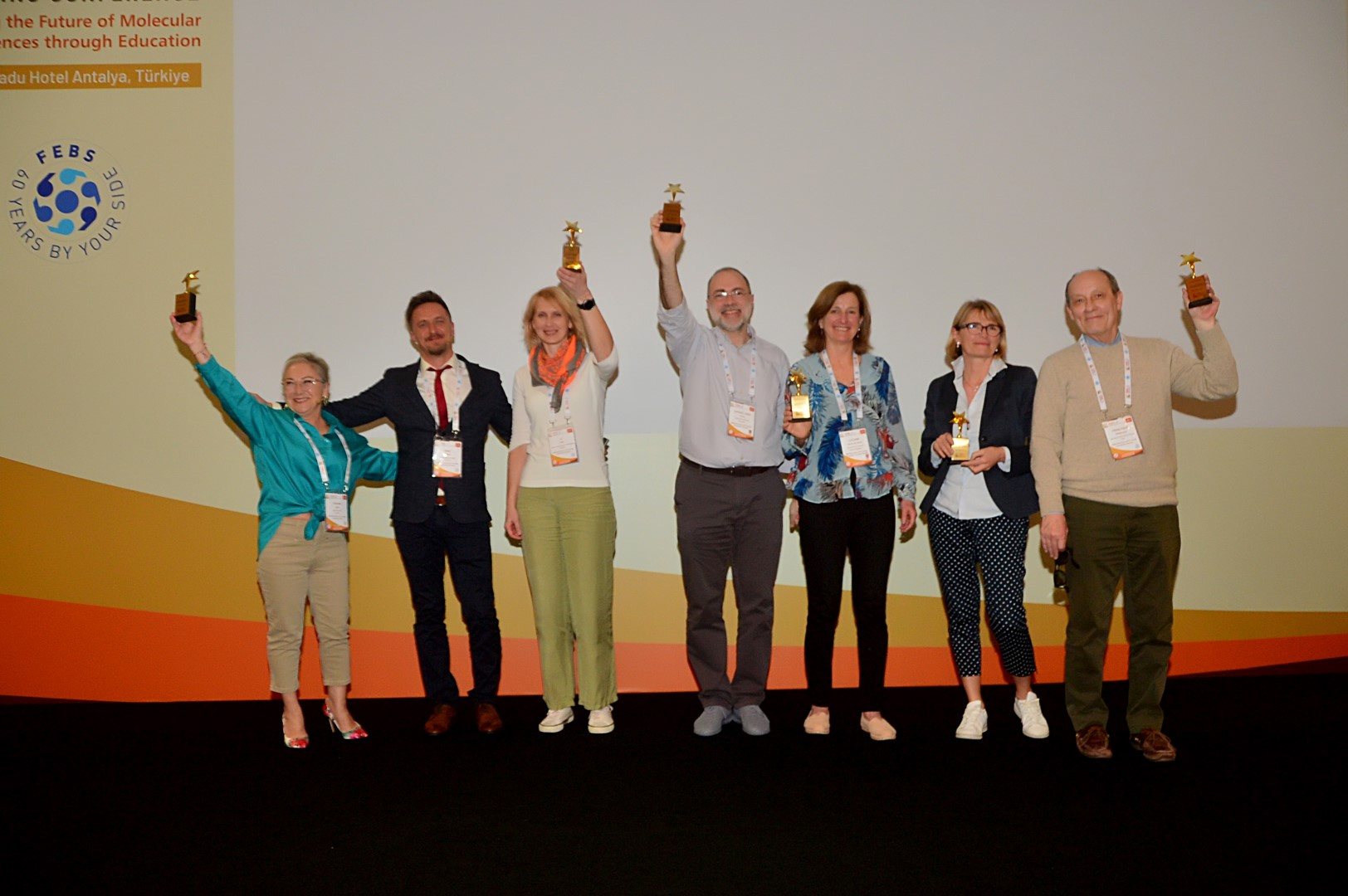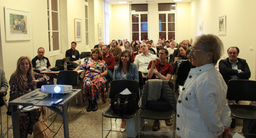My experience in the FEBS Education Committee: Lessons for the future
I was elected to the committee in 2021, with m first meeting on February 9, and invited by FEBS for a second term in early 2023.
Despite the formal recognition of the importance of education in developing a more critical and inclusive society, it is evident that education is still regarded as a non-priority in many European
countries. Throughout many discussions, the committee frequently addressed how to elevate education in public discourse across FEBS and across national societies. Alarmingly, there are funds available from FEBS that remain unutilized by some national societies, indicating that more engagement in education is required by the
national communities.
In this context, I'm proud to highlight that the Portuguese Biochemical Society is well-regarded within FEBS for its active involvement in educational initiatives and its successful hosting
of international FEBS-sponsored events like the "Evidence-Based Teaching in Your Biomolecular Classroom: Catalyzing Student Engagement" symposium (2021), or the "Symposium on Pedagogical Innovation in Biosciences: How to Engage Students in Our Practices?" (2023).
Both events successfully attracted international colleagues and provided critical input to attendants. Adding to this, education was
particularly highlighted in the XXII National Congress of Biochemistry of the Portuguese Society in 2024 with the inclusion of a dedicated
symposium. This led to the onward commitment to always include a section dedicated to education in the National Congress and the Young Researchers' Forum.
During my tenure, I contributed to the vision and initiatives of the FEBS Education Committee, which included leading workshops and events such as the Joint Education Workshops FEBS/ Croatia BMB
society “Research on Education" (2022), in Zagreb, or the FEBS Helenic BMB society "ATHENS: Approaches in Transformative and Holistic Education for Novel Science" workshop (2024).
In July, I will be leading a session at the FEBS 2025 congress in Istanbul titled "From Challenges to Opportunities: Integrating Al in Biosciences Education."
I am particularly delighted to have participated in designing the groundbreaking FEBS Education Academy and launching its initiatives at the FEBS Education and Training Conference in Antalya, Turkey (2024) (Fig. 2). A special achievement during this period was the publication of “A white paper from the FEBS Education and Training
Conference: challenges, opportunities, and action plans for transforming molecular life sciences education”. Additionally, I have the honor of serving as the Editor of the Education Section of the FEBS Open Bio journal, where I published a feature titled "Maximizing Engagement: Active Learning Approaches for Large Classes."
I have also had the opportunity to scaffold bridges between the Portuguese and Brazilian education communities in biochemistry through the "Tanto Mar" initiative, fostering collaborative efforts in education across both regions.
I would like to express my sincere gratitude to the Board of the SPB for their confidence in me, particularly to Vítor Costa. I also want to thank Margarida Fardilha for her energetic engagement and initiative.
Additionally, I extend my appreciation to the Committee's President, Ferhan Sagin, under whose guidance new foundations are being created.
Engaging in the FEBS Education Committee has been immensely rewarding and important for SPB. Elevating our critical reflection
is essential, and a feasible way to achieve this is through sharing best practices and co-designing the future across societies.
I observed how colleagues doing exciting work within their courses were inspired by meeting peers and gaining insights into their own potential. We all face similar challenges in designing quality
education across societies. We must develop into a community of peers who meet, discuss, and reflect on our practices in the classroom. Recognition of teaching is becoming increasingly important across Europe for career advancement. Let's seize
this opportunity to come together within SPB and FEBS to nurture and value a community focused on education in molecular biosciences.
This future demands a critically engaged community of academics who recognize the importance of understanding how to implement,
and are committed to advancing research-based education within their institutions and countries. While we've made significant progress, it's essential to keep moving forward. Although we
may not yet have a clear path, I am confident that we will soon experience an “aha” moment that will transform molecular life sciences education, akin to the impact of PCR in DNA amplification.
(this text was published in the SPB june monthly newsletter)  of SpB)
of SpB)

Join the FEBS Network today
Joining the FEBS Network’s molecular life sciences community enables you to access special content on the site, present your profile, 'follow' contributors, 'comment' on and 'like' content, post your own content, and set up a tailored email digest for updates.
Thank you so much, Manuel, for this beautiful reflection!
It was (and always is) great working with you!
I am sure we will find new ways to co-create💓
Cheers!
Ferhan